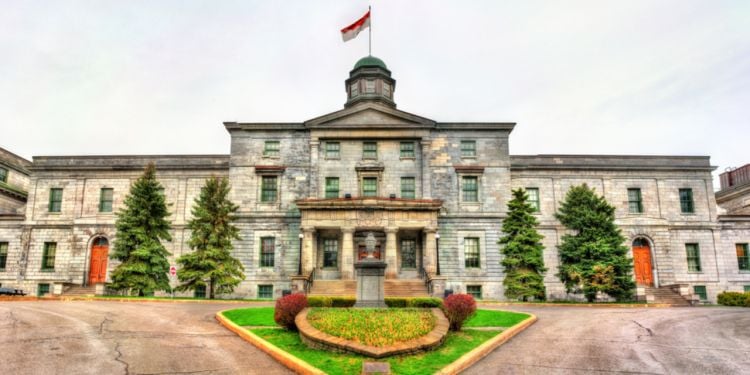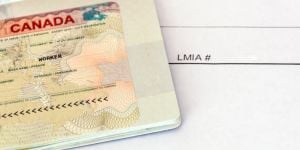
If you've ever dreamed of studying in Quebec, Expat.com encourages you to explore the higher education system of Quebec in this article.
Quebec's universities are among the top in North America, offering a diverse range of courses in both French and English within a pleasant and multicultural student environment. According to the official Quebec government website, the province provides over 3,000 training programs. With more than 700 university research centers, Quebec leads in cutting-edge fields such as artificial intelligence, aerospace, new materials, quantum technologies, biomedical engineering, and visual arts. La Belle Province also boasts a number of technical and business schools, as well as several “regional” universities located far from major urban centers. Opting to study in the city promises an exciting student life, coupled with tuition fees that are among the lowest in North America.
In university, you have the option to pursue a master's degree equivalent to a master's degree or a bachelor's degree equivalent to a license. If you're looking for shorter courses, a certificate program allows you to earn a university diploma in just one year. Additionally, opting for a major and minor typically leads to 60 and 30 Canadian university credits, respectively. Quebec universities also warmly welcome doctoral students.
Technical and vocational training programs lead to a Diploma of College Studies (DCS) – lasting 2 or 3 years – and a Certification of Diploma of College Studies (CDCS) – lasting 3 to 15 months.
Opting to pursue your studies in Montreal? Keep in mind that this Quebec metropolis secured the 14th spot in the QS Best Student Cities 2023 ranking. Montreal hosts plenty of events and festivals year-round, ensuring you won't run out of things to do, even during the winter months! In 2023, three Montreal universities — McGill University, University of Montreal, and Concordia University — made it into the top 500 globally. To learn more, check out our articles on studying in Montreal and student life in Montreal.
Higher education in Quebec: how to proceed?
To study in Quebec, you must meet four conditions:
- You must be admitted to a designated educational institution in Quebec;
- You must demonstrate your financial ability to assume the costs of studying and living in Quebec;
- You must pay the fees for the examination of your application;
- You must agree to respect all the conditions of your Quebec Acceptance Certificate (QAC).
Begin by choosing a study program at a post-secondary institution and submit a completed application form, along with all the necessary supporting documents and payment of applicable fees, if required. Ensure that your chosen program is open to international students. Additionally, many institutions have a distinct application deadline specifically for foreign students.
After your academic file has been reviewed, the school will issue you an admission letter. Once you have this letter, you can initiate the process of obtaining authorization to study in Quebec. This involves applying to the Ministère de l'Immigration, de la Francisation et de l'Intégration (MIFI) for a temporary study permit. As of 2023, the fee for evaluating an application for temporary selection for studies is C$124, and please note that this fee is non-refundable, even if the application is not approved. MIFI typically processes applications for Temporary Study Selection within 25 working days, excluding postal delays. Once you've completed and paid for your application, you can track your file online.
To apply for temporary selection for study, you'll need to provide specific documents, including a copy of the identity pages of your passport, the admission letter from your educational institution in Quebec, and proof of financial capacity. The costs associated with studying and living in Quebec include tuition fees, transportation expenses, living costs, initial installation fees for the first year, and the price of health and hospitalization insurance. It's crucial to demonstrate sufficient resources or funds to cover all these expenses throughout your study period. Acceptable proof may include recent money transfer records, salary statements, bank letters, a bank statement for the past three months, or an up-to-date bank book.
For the year 2023, the Ministry estimates living expenses for a foreign student over 18 years of age at $14,349 CAD per year of study. To this amount, you must add your tuition fees, transportation costs to and from Quebec, and a settlement fee of $500 CAD. For detailed information on tuition fees, please refer to the website of the university you are interested in. Note that there is a flat fee added to the basic university tuition fees for Canadian students who are not Quebec residents and for foreign students enrolled in research-oriented graduate or post-graduate programs.
If you're from a country that has a reciprocal health coverage agreement with Quebec (like Belgium, France, Denmark, Finland, Greece, Luxembourg, Norway, Portugal, Romania, and Sweden), you'll be automatically covered by Quebec's health insurance system, RAMQ, at no additional cost. Conversely, students from countries without such agreements with Quebec are required to purchase private health coverage. This coverage is paid directly to the university, along with tuition fees.
You'll also need to apply for a study permit. Depending on where you currently live or your previous travels abroad, you may need to undergo a medical examination and submit your biometric data. As of September 2023, the processing time for a study permit application is around 7 weeks, excluding the time required for biometric data submission. For additional information on the study permit, reach out to Immigration, Refugees, and Citizenship Canada (IRCC).
When you arrive at the airport in Quebec, make sure you have all the following documents on hand:
- Your passport;
- Your study permit, or letter of authorization issued by Immigration, Refugees and Citizenship Canada (IRCC);
- Your temporary resident visa, if applicable;
- Your QAC for studies, or the letter attesting to the issuance of your QAC for studies;
- Your health certificate, if you had to undergo a medical examination before obtaining your study permit;
- Admission letter from your educational institution.
Good to know:
If your study program in Quebec is for less than 6 months, there's no need to apply for a study permit or a QAC. In such cases, you can pursue your studies with a visitor's or worker's permit. The official Quebec government website suggests arriving in the province at least 2 weeks before the school year begins to get acquainted with your new surroundings.
Scholarships for foreign students in Quebec
International students in Quebec have access to various scholarships. For example, the Quebec government offers scholarships for excellence, specifically aiming to support outstanding international candidates enrolled in programs with promising employment opportunities. Tuition fee exemptions may also be granted for different reasons, such as priority sectors, specific study programs, chosen regions, etc.
To gather more details, reach out to your school or university and inquire about potential partnerships or exchange programs with institutions in Quebec. Frequently, this information is accessible in the “foreign students” section on school and university websites. Additionally, you can explore scholarship opportunities on the website of the Canadian embassy in your country.
In Quebec, tuition fees differ based on whether you are a foreign, Canadian, or Quebec student. If you're French, there's an agreement between France and Quebec that enables you to pay the same rates as Canadian students for undergraduate degrees (bachelor's, certificate, minor, and major), and the same rates as Quebec residents for graduate degrees (master's and doctorate).
Renewing your authorization to study in Quebec
If you decide to continue your higher education studies in Quebec beyond the expiration date of your QAC, change your level of study, or delay the start of your program by more than one session, you need to apply for a new Temporary Study Selection at least three months before your study permit expires. The application process remains the same as it was for your initial application.
Studying and working in Quebec
Most universities provide a job board with listings for student employment, which may include positions on or off campus. For more information on job hunting in Quebec, check out our article on Finding a job in Quebec. International students are required to be enrolled in a full-time course, but their study permit allows them to work up to 20 hours per week off-campus during the regular study period and full-time during school breaks. If you choose to work on campus, there are no restrictions on the number of hours you can work, in addition to any off-campus employment, as long as you continue to meet the eligibility criteria for on-campus work. In both cases, obtaining a Social Insurance Number (SIN) is necessary.
Certain courses incorporate a combination of classes and paid internships, commonly referred to as co-op placements. These internships typically last twelve to fifteen weeks. If you're enrolled in such a program, you'll need to apply for a work permit in addition to your study permit. Required documents include the IMM5710 form, a letter from your educational institution confirming that the desired job is an integral part of your study program, and photocopies of the relevant pages of your passport. It's important to note that these internships must be an integral component of your program of study.
Please note: Taking a course dedicated to learning English does not give you the right to work during your studies.
Good to know:
Between November 15, 2022, and December 31, 2023, foreign students in Quebec may not need to apply for a co-op work permit. Specific conditions apply, and you can complete your co-op work term without a co-op work permit if you meet these criteria. For further details on this temporary exemption, refer to this page.
Obtaining a post-graduation work permit in Quebec
Following your graduation, if you wish to continue working in Quebec, you have the option to apply for a Post-Graduation Work Permit (PGWP), subject to specific conditions. The validity period of your PGWP is determined by the length of your program of study. The PGWP permits you to work for any eligible Canadian employer. There were changes to the eligibility requirements for the GDWP in June 2022. To find out about the programs and institutions that grant access to this work permit, you can refer to the Immigration, Refugees, and Citizenship Canada website.
It's important to be aware that if you decide not to obtain a QAC for studies or a study permit (for instance, if you were holding a work permit or work authorization while awaiting an extension to your work permit issued before June 7, 2023, and it's still valid), you won't be eligible to obtain a post-graduation work permit. If the PGWP is not an option for you, there are alternative ways to work in Canada after completing your studies. Check this page to determine your eligibility for other types of work permits.
Useful links:
Citizenship and Immigration Canada - Do I need a permit to study in Canada?
Immigration Québec - Studying in Quebec
Immigration Québec - Application for temporary selection for studies
We do our best to provide accurate and up to date information. However, if you have noticed any inaccuracies in this article, please let us know in the comments section below.








